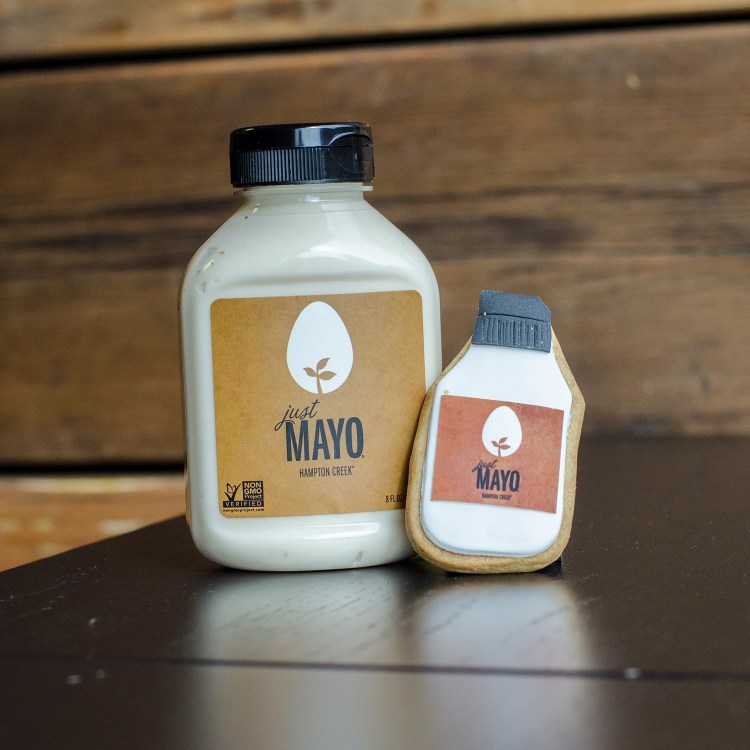Update at 9:56 a.m. PT: Updated with clarification from Partovi.
Hampton Creek rattled the food and tech worlds when it set out to replace eggs with plant-based alternatives in 2011. Now it’s selling its mayonnaise through retail stores and its cookies through corporate cafeterias.
When I first heard about Hampton Creek, it sounded like a company granola-eating techies would start, a Whole-Foods-meets-Soylent kind of idea, because why not disrupt eggs, right?
Well, today the young company (not even three years-old) has already released two products, raised $30 million in funding and, as of today, has a new chief strategy officer: current investor and advisor Ali Partovi.
As an investor since February when he participated in Hampton Creek’s second round of funding, Partovi has been working quite closely with chief executive Josh Tetrick and indulging in his recent interest in the rethinking of food and agriculture. As he takes the reins of the company’s strategy, Partovi will mainly focus on the company’s brand positioning in the market, continue to mentor Tetrick, and help answer big questions such as what its next product should be and how soon it should jump into China.
Partovi made his name when he co-founded two companies which were acquired by Microsoft and MySpace and then went on to become an investor and advisor to companies such as Facebook, Dropbox, and Zappos. Most recently, he co-founded Code.org with brother Hadi Partovi, which advocates for the teaching of computer science in U.S. public schools.
“I have been, over the past five years, really passionate about rethinking food and agriculture. Hampton Creek for me is one of the most exciting companies,” Partovi told VentureBeat.
Now that Hampton Creek has been selling products and doing well (he tells me its mayonnaise is number one at Whole Foods), Partovi is looking at the bigger picture and at the business as a 21st century consumer foods company.
“If you’re trying to create the next Proctor & Gamble or Kraft today, how would you do it?” he said. These consumer goods conglomerates were built on traditional media, he added. But Hampton Creek lives in the social media age, and it needs to build its brand like a company of that age. This is how big Partovi is thinking — Proctor & Gamble big.
“There’s also a huge element of strategically figuring out how to prioritize” the company’s product roadmap, he said. As mentioned, Hampton Creek is already making mayonnaise and cookies, but what’s next? Not only could it start working on a new product, but it could also just keep focused on these two and explore different sales channels.
Although he wouldn’t share any details or timeline, Partovi said that the company will be producing both egg-focused and non-egg-focused products.
“One of the most important challenges in humanity is how to rethink the food system out be more efficient, to be more sustainable. The current way to feed people is not efficient, it’s not sustainable,” he said. Hampton Creek is in a position to really affect the direction our food production takes, he said.
But just how will Hampton Creek create its new products?
With data science, of course. Turns out, Hampton Creek recently got itself a small data science team, headed by Google Maps’ former lead data scientist, Dan Zigmond.
“[We’re] trying to build the world’s most comprehensive database of plants and plant genetics and molecules,” said Partovi. [Update: Partovi later clarified that “discovering and cataloguing new properties in the plants that are already part of the human diet will help us find innovative new recipes.”]
The idea is to take the trial and error out of creating foods and recipes, as we have been doing so far, according to Partovi. For example, mayonnaise is traditionally made with a whole lotta eggs, in one particular way, but why? Hampton Creek has demonstrated that there are alternatives, and it could do the same with countless other foods.
And don’t be surprised if China is the the first, or one of the first, markets Hampton Creek attempts to help — Li Ka-shing’s venture fund, Horizons Ventures, is Hampton Creek’s largest investor. Ka-shing, of course, is Asia’s richest man, with connections in the Chinese market that many companies would gladly tap into.
“China is one of the most important markets and one of the most rapidly changing markets,” Partovi said.


